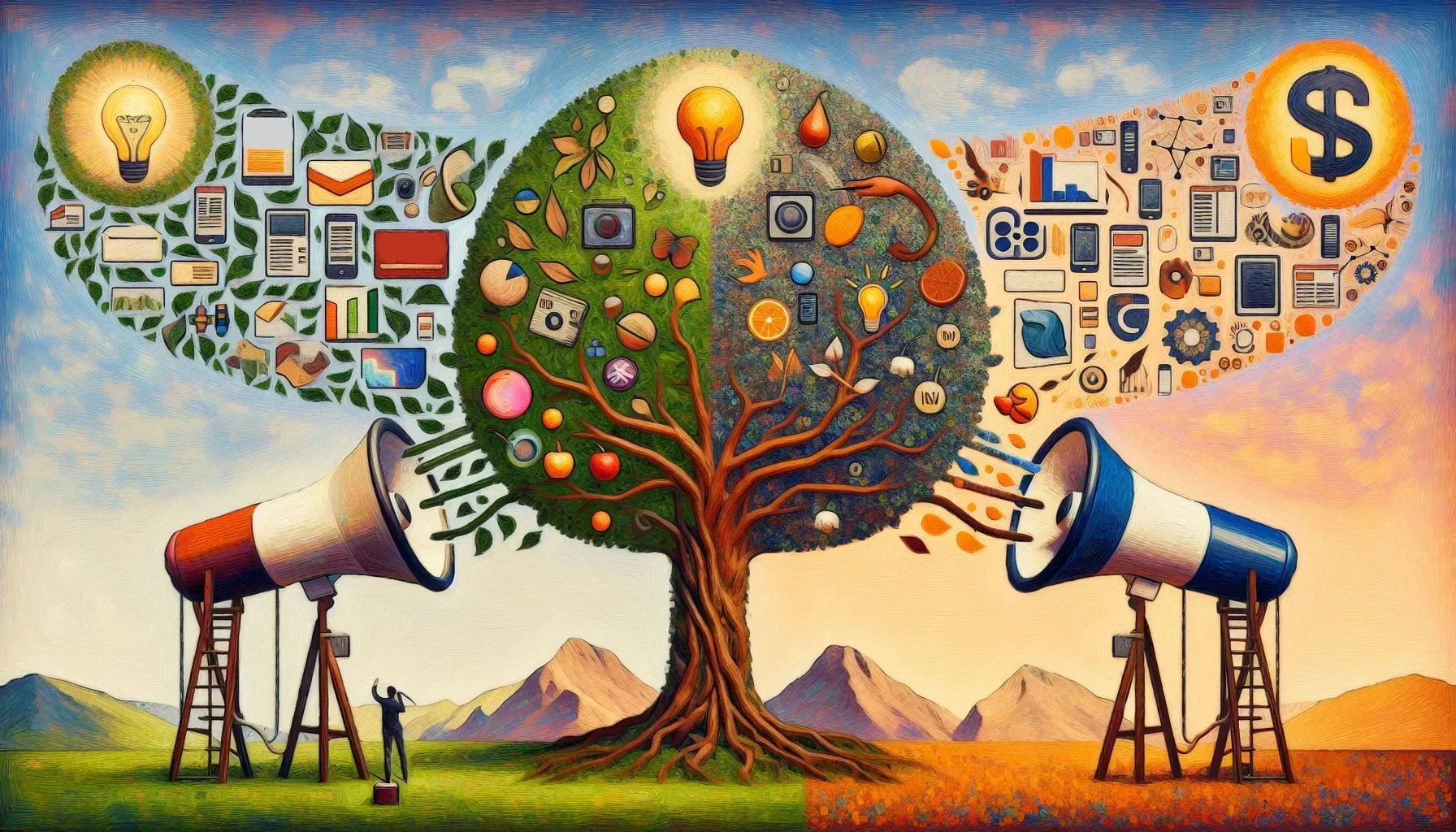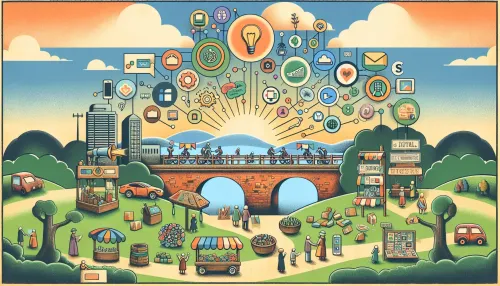Content Marketing vs. Traditional Advertising: A Performance Driven Analysis

In the ever-evolving landscape of digital marketing, businesses constantly face the challenge of choosing the most effective strategies to engage their target audience. As the competition for consumer attention intensifies, the debate between content marketing and traditional advertising takes center stage. In this comprehensive analysis, we delve into the performance-driven aspects of these two approaches, addressing common challenges faced by marketers and providing actionable solutions.
Understanding Organic Reach in Digital Marketing
The quest for organic reach remains a crucial objective for digital marketers. When comparing content marketing and traditional advertising in this context, it's essential to understand their impact on organic reach.
One common challenge is the saturation of traditional advertising channels, leading to ad fatigue among consumers. This often results in diminishing organic reach and engagement levels.
What Challenges Do Marketers Face with Traditional Advertising?
Content marketing excels in educating and engaging the audience through valuable, relevant content. By leveraging high-quality and informative content, marketers can organically attract and retain a loyal audience. Integrating the brand message within educational content establishes credibility and fosters trust, leading to enhanced organic reach.
ClicksBuzz Blog understands the significance of organic reach in today's digital ecosystem. By consistently focusing on educational and insightful content, brands can position themselves as industry authorities while naturally expanding their organic reach.
How Can Content Marketing Enhance Organic Reach?
In an era dominated by ad-weary consumers, capturing their attention presents a formidable challenge for marketers. The battle between storytelling through content and direct ad appeals defines this struggle.
Engaging Modern Consumers: Storytelling vs. Direct Ads
Traditional advertising often struggles to resonate with modern consumers who seek authentic, meaningful connections with brands. Interruptive ads are frequently dismissed or ignored, failing to establish lasting connections or evoke emotional responses.
Content marketing capitalizes on storytelling to forge genuine connections with the audience. By crafting narratives that resonate on a personal level, brands can elicit emotions and build lasting relationships with consumers. Personalized storytelling draws consumers into an immersive brand experience, fostering loyalty and advocacy.
Related Article: Common Digital Marketing Mistakes: Avoid These Pitfalls for Success
What Challenges Arise from Traditional Ad Appeals?
By understanding that connecting with modern consumers demands authenticity and emotional resonance. By integrating storytelling into content marketing strategies, brands can create memorable experiences that resonate deeply with their target audience.
Optimizing budget allocation presents a perpetual dilemma for marketers aiming to maximize their ROI. Determining where to allocate resources between creating evergreen content and immediate ad placements stands as a critical decision.
How Does Storytelling Foster Consumer Connections?
Balancing long-term brand equity and short-term performance objectives poses a significant challenge. Marketers often wrestle with budget decisions that impact brand visibility, customer acquisition, and overall revenue generation.
Investing in evergreen content cultivates enduring brand value and sustainable long-term benefits. Such content continues to attract organic traffic, engage audiences over time, and solidify brand positioning. Concurrently, strategic immediate ad placements complement evergreen content by driving targeted traffic and conversions in the short term.
Budgeting for Evergreen Content vs. Immediate Ads
As we recognize the intrinsic value of evergreen content in maintaining brand relevance over time. By carefully balancing budget allocations between evergreen content creation and targeted ad placements, brands can achieve a harmonious blend of long-term sustainability and immediate impact.
What Budgeting Challenges Do Marketers Encounter?
Performance measurement constitutes a fundamental aspect of marketing strategies pursued by businesses. Assessing success metrics between data-driven content strategies and ad campaigns remains imperative for gauging effectiveness.
Marketers encounter challenges in aligning success metrics between data-driven content strategies and ad campaigns. Establishing unified key performance indicators (KPIs) that encompass both approaches presents complexities in measuring overall campaign performance accurately.
Related Article: The Digital Marketing Dilemma: Common Missteps to Evade
Why Invest in Evergreen Content?
Data-driven content strategies enable marketers to measure engagement, retention, and conversion rates with granularity. Leveraging data analytics provides insights into consumer behavior, preferences, and journey mapping. Conversely, ad campaigns pivot around immediate visibility, click-through rates, and conversion metrics that denote short-term performance.
By emphasizing the significance of holistic performance measurement encompassing both data-driven content strategies and ad campaigns. By integrating overarching KPIs that encapsulate long-term engagement derived from content strategies with short-term conversion-focused ad campaign metrics, marketers can gauge comprehensive campaign success effectively.
Measuring Success: Content Strategies vs. Ad Campaigns
In conclusion, as businesses navigate the dichotomy between content marketing and traditional advertising in the digital realm, adapting to evolving consumer preferences while balancing short-term gains with long-term brand equity is paramount. The performance-driven analysis presented here serves as an invaluable guide for marketers seeking to optimize their digital marketing strategies within the dynamic landscape of modern consumerism.
Frequently Asked Questions
Content marketing excels in educating and engaging audiences through valuable, relevant content. This approach helps build credibility and trust, leading to enhanced organic reach. Unlike traditional ads that may cause fatigue, content marketing fosters a loyal audience by providing informative experiences that resonate with consumers.
Storytelling in content marketing allows brands to connect authentically with consumers. By crafting narratives that evoke emotions, brands can create memorable experiences that foster loyalty and advocacy. This personal connection is often more effective than direct ad appeals, making storytelling a powerful tool for modern marketers.
Balancing budget allocation between evergreen content and immediate ad placements is crucial for maximizing ROI. Evergreen content provides long-term value by continuously attracting organic traffic, while targeted ads can drive quick conversions. This strategic balance ensures sustained brand visibility and effective short-term performance in marketing efforts.
Check Out These Related Articles

Debunking the Myth: Digital Marketing Doesn't Require Ongoing Adaptation

The Art and Science Fusion: Elevating Digital Marketing

Bridging Generations: Melding Digital Marketing with Traditional Tactics

